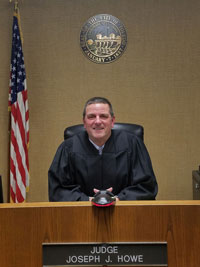Rights & Responsibilities
A landlord has certain rights and responsibilities. Landlords are bound by their lease agreements and laws which govern rental of residential property.
The following is a general list of rights for landlords:
A landlord can sue a tenant for money damages, termination of lease, and eviction from the property if the tenant fails to fulfill his/her duties under the lease agreement or the law.
A landlord can file suit to evict a tenant when:
- Tenant fails to pay rent in accordance with the lease or rental agreement.
- Tenant violates important terms of the lease.
- The lease agreement has expired and the tenant remains in the property without the landlord’s consent.
- Tenant fails to comply with proper notice to correct health and safety violations. Written notice must be given to the tenant stating specific violations (tenant then has thirty (30) days to correct the situation).
- Tenant refuses to allow landlord reasonable access to the unit.
- Tenant files a complaint against the landlord to a governmental agency about housing violations which were actually caused by the tenant and/or guests.
- Landlord’s compliance with housing laws would require alteration or demolition of the building which would deprive the tenant of effective use of the premises.
The following is a general list of responsibilities for landlords:
Landlords must:
- Give tenants (who lease dwellings built before 1978) a federally-approved lead hazard information pamphlet BEFORE THE LEASE TAKES EFFECT. Disclose any known lead-based paint and/or lead-based paint materials. For more information, contact the EPA National Lead Information Center at 1-800-424-LEAD, or visit their website at Environmental Protection Agency.
- Provide tenants in dwellings with two or more units facilities or containers for the sanitary and safe storage/disposal of trash (tenants in single-family dwellings must provide their own trash receptacles).
- Provide a heating system capable of maintaining a minimum of 68 degrees in each habitable room.
- Put the premises in a safe and habitable condition before renting and maintain the unit in a safe and habitable condition during the tenancy.
- Assure that the property complies with all building, housing, and health codes which significantly affect health and safety. The City of Toledo has housing inspectors who can inspect conditions and cite landlords for violations, condemn properties unfit for habitation, and prosecute landlords who refuse to comply with housing code requirements.
- Make all necessary repairs to make the property livable. This includes keeping all electrical, plumbing, and heating and ventilation systems in good working order.
- Exterminate for pests when necessary.
- Supply adequate hot and cold running water and heat at all times.
- Keep all common areas in the building or on the grounds safe and sanitary.
- Give tenants at least twenty-four (24) hour notice before entering the rental unit except in case of emergency. The landlord may not abuse the right of access to inspect the property, deliver packages, or show the property to prospective tenants or buyers. Landlords may not enter without proper notice and can be held responsible for any damages or injuries caused by their trespassing.
Landlords cannot:
- Shut off utilities or other services, change the locks, remove doors or windows, or threaten to do any of these unlawful acts in an attempt to evict tenants.
- Prevent you from exercising your rights as a tenant by increasing your rent, decreasing your services, bringing or threatening to bring an eviction because you have complained to him/her or to the city about a code violation or because you participated in a tenants' union.
- Enter your apartment or house whenever he/she wants to or repeatedly demand to enter even though proper notice has not been given.
- Refuse to rent to tenants because of their race, color, national origin, sex, religion, familial status, disability, military status, ancestry, sexual orientation and gender identity. (Age is a protected class in Ohio for lending only.)
If a landlord does any of the above, he/she can be sued for damages and forced by court order to restore utility services, remove padlocks, and return tenants' property or rent to the person discriminated against. Punitive damages may also be assessed against landlords who deliberately or maliciously violate the law.


